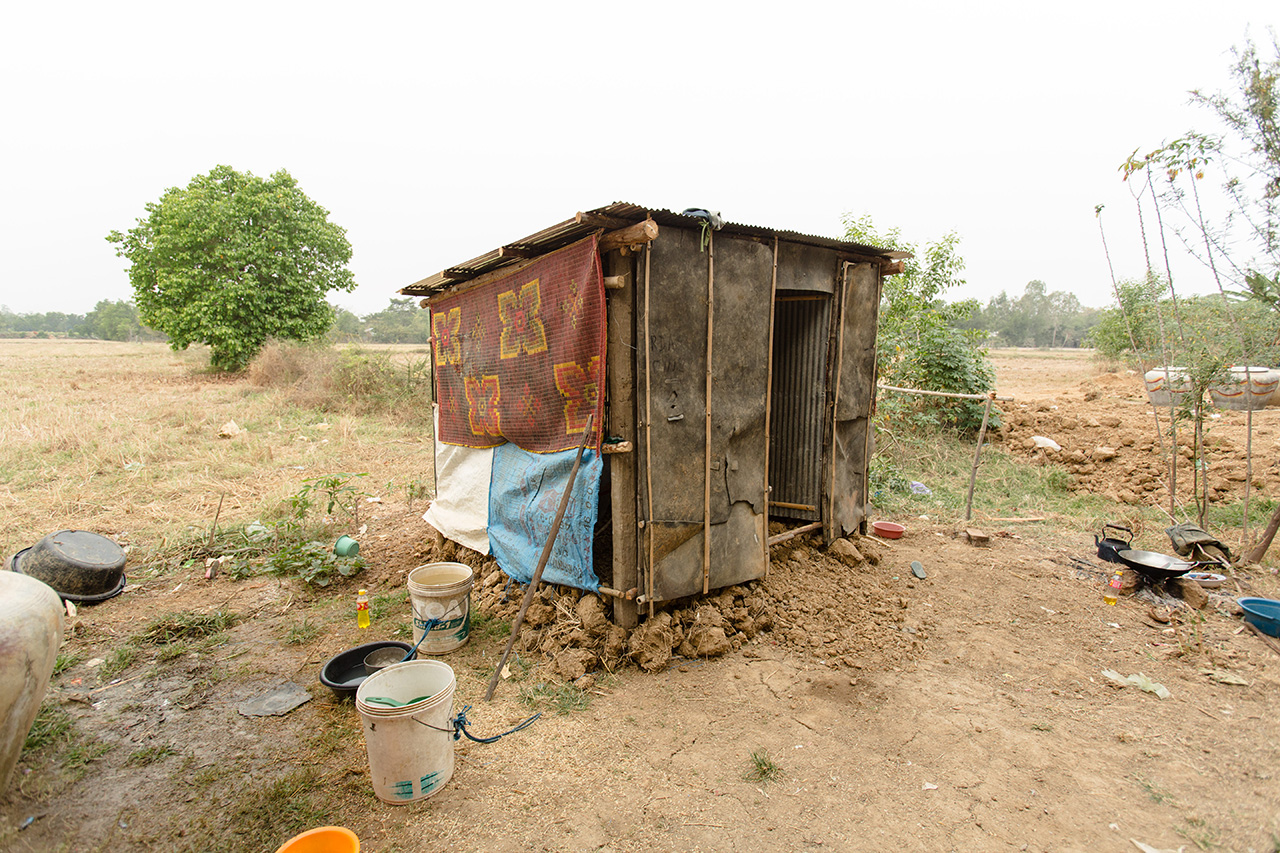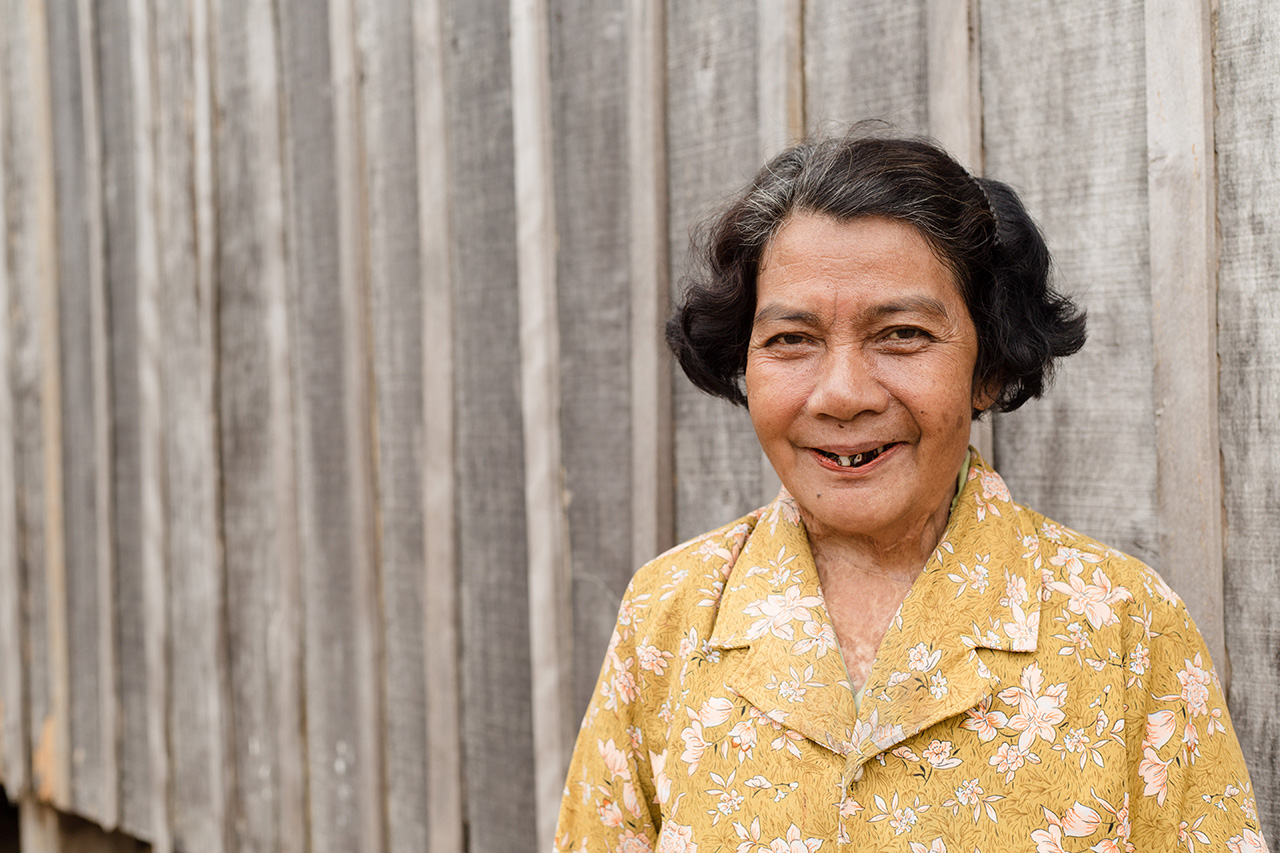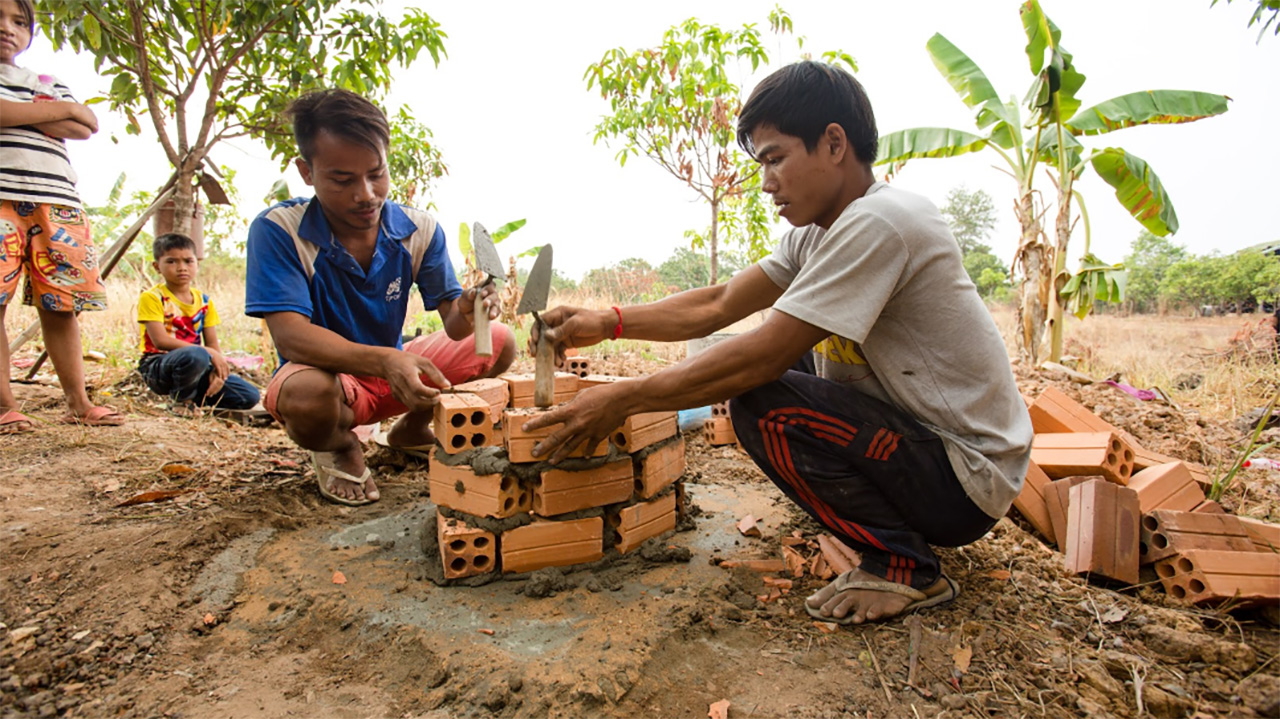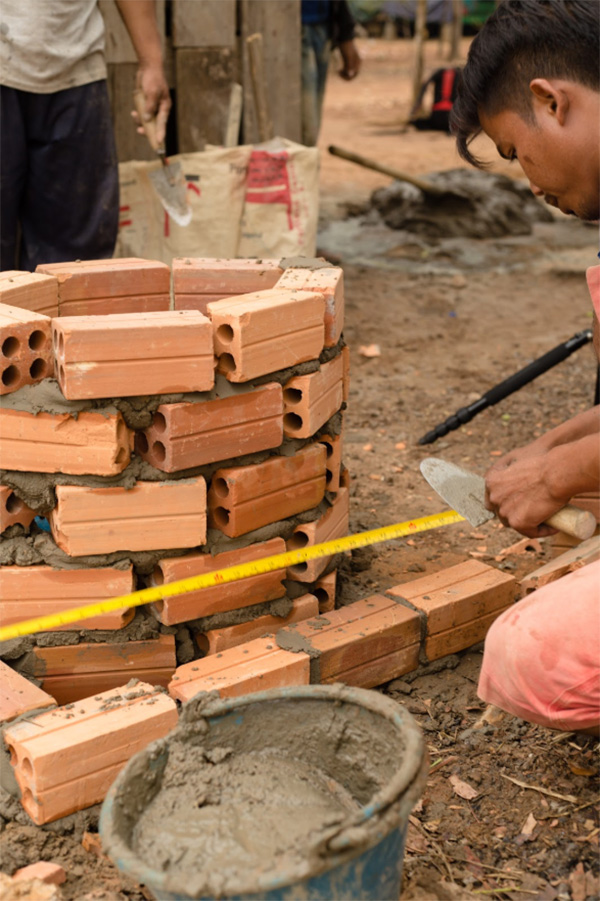Ryan Shanley is a humanitarian photographer who recently visited several CWS programs in Asia. This blog is part of a series of reflections on her trip. Follow Ryan on Instagram @ShanleyStudio or through her website.
Imagine I have a bottle of water. There’s a plastic seal on the cap. I unwrap the plastic seal, twist off the cap and take a sip. You wouldn’t see anything wrong with that, the bottle of water is clean. Now, imagine I take a piece of hair and place it in a piece of exposed feces. I then place that hair in the bottle of water. The water doesn’t look any different, but you would be horrified if I drank it, correct? Well what if instead of a piece of hair it was a fly, a fly that lands on exposed feces and then landed on your food. You might not know it just landed in exposed feces, but your food is contaminated just the same.
This is the example Church World Service uses with communities to teach them about sanitation and hygiene (click here to see one such demonstration in Vietnam). No matter who you are, where you live or your circumstance, no one wants to consume feces – this lesson is very effective. The idea is to educate communities about why open defecation is detrimental to sanitation and health. Westerners wouldn’t consider this situation or teaching example because we are taught sanitation standards at a young age and we utilize toilets to relieve ourselves, but in Cambodia, specifically North East Cambodia, in Preah Vihear, they are not as fortunate.
One of CWS’s main focuses in Cambodia is providing clean latrines to families that do not have a place to defecate. Men, women and children are forced to relieve themselves in their fields, or if they do not have their own land, on someone else’s land – at which time they are usually yelled at, demeaned while relieving themselves and forced to run away. This is their reality, and it’s dehumanizing and appalling. We often think of promoting children’s education, ending sex trafficking, providing access to clean water – these global issues that many aid groups have worked on for decades. We don’t stop to think: does everyone have a bathroom? Does everyone have a place to relieve themselves? That should be a basic human right – the right to a private and dignified place to urinate and defecate.
On our fifth shoot day we visited the home of Ms. Prak Sim from Sra-aem Khang Tboung village. She had saved enough money to hire labor to install a CWS-provided latrine for her family. CWS provides the materials and the rings to build the hole for the latrine, but the families are required to provide the labor and the materials for the exterior cover/structure. She was telling the team a story about a time when she was defecating in the field and a snake starting coming towards her. She was in the middle of relieving herself when she had to run away. She had to clean herself afterwards, and it was humiliating. Everyone around her laughed because in their world open defecation is a reality, so having to run away in the middle of it is funny, but in fact, that’s horrible! She was smiling when she told us the story, but I felt horrible for her. No one should ever have to experience something so dehumanizing.
But what you all want to know is: did I experience this first hand? Sure did. Not in Cambodia, but in Morocco, in the middle of the desert, behind a “bush.” There aren’t really bushes in the desert. This was more of a collection of branches just on the other side of a sand dune so it was relatively “covered.” Always carry a travel package of kleenex, folks. I was behind a dune and this was still embarrassing – can you say stage fright? Then you wonder if people have noticed that you’re “taking too long” – see this whole thing escalated rather quickly. In all seriousness, this was just one time, but imagine if this was normal, a regular occurrence. You can’t, can you?
Remember, everybody poops. A private and dignified place to urinate and defecate should be a human right.





